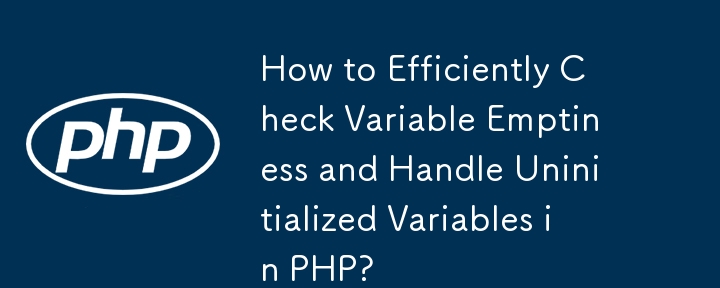

Checking Variable Emptiness: Optimizing and Simplifying
In PHP, it's crucial to check if a variable is empty before processing it. The example code checks if $user_id, $user_name, and $user_logged are empty, but there are more efficient methods to achieve this.
Using the Identity Operator (===)
To determine if a variable is truly NULL (as opposed to an empty string or zero), use the identity operator:
$user_id === NULL // False if $user_id is NULL, true if it's empty
Checking for Uninitialized Variables
If you want to check whether a variable has been initialized, use the !isset() function:
!isset($user_id)
Testing for Empty Values
To check for empty values (empty strings, zero, etc.), use the empty() function:
empty($user_id)
Checking for Non-Empty Values
The negation operator (!) will suffice to test for non-empty values:
!$user_id
Optimizing for Multiple Variables
To test multiple variables simultaneously, you can use an array and the built-in array_map() function:
$variables = array($user_id, $user_name, $user_logged);
$empty_variables = array_map(function($v) { return empty($v); }, $variables);This will return an array indicating which variables are empty.
The above is the detailed content of How to Efficiently Check Variable Emptiness and Handle Uninitialized Variables in PHP?. For more information, please follow other related articles on the PHP Chinese website!




